October 17, 2019
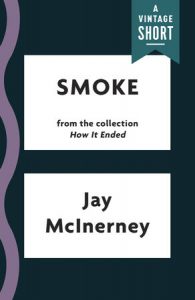
A Vintage Shorts “Short Story Month” Selection
That summer in New York, everyone was wearing yellow ties; the stock market was coming into a long bull run; and Corrine and Russell Calloway quit smoking.
From the writer whose Bright Lights, Big City defined a generation and the city of New York: the taut, darkly funny, alternately sultry and wistful story of the Calloway clan, who also appear in The Good Life and Brightness Falls. A selection from How It Ended, a career-spanning collection of McInerney’s short fiction, which show him to be a master of the genre, “brim[ming] with all the attendant guilt and thrills and self-defeating impulses of an extramarital tryst . . . Brilliant” (The Boston Globe).
File Size: 4325 KB
Print Length: 34 pages
Publisher: Vintage (May 9, 2015)
Publication Date: May 9, 2015
Language: English
ASIN: B00VD0420A
Continue Reading
October 16, 2019
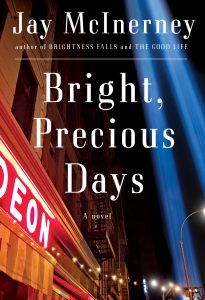
Author's Notes
Early in 2012 I started to look back at recent New York history and it occurred to me that a new era, a post 9/11 era, started coming into being in 2007 and really began to take shape in the fall of 2008, when the economy almost collapsed, and when, paradoxically a new era of hope seemed to be ushered in with Obama’s election. Of course, four years later, looking back, it was impossible not to feel the melancholy of lost opportunity, but this book began with the image of a group of New York friends sitting around a loft in Tribeca watching election returns even as the financial system was collapsing. And the loft, of course, belonged to my old friends Russell and Corrine Calloway, who had come to life in Brightness Falls and returned again in the
Continue Reading
October 16, 2019
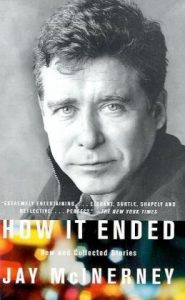
Author's Notes
Like most novelists, I started out as a short story writer, and I’ve written stories throughout my career. I really love the form as a reader; as a writer I find it challenging, and daunting. Whereas in a novel you have room to fool around, a short story has to be a thoroughly economical and efficient mechanism. I started out writing poetry so the short story was a logical progression; I thought of the story as a poem with a linear narrative. My first and third novels started out as stories; sometimes they proved to be warmups to a larger narrative, but as often as not I found myself writing stories in between my novels.
After I finished The Good Life, I decided I wanted to write a collection of stories from scratch, really dedicate myself to the form and
Continue Reading
October 16, 2019
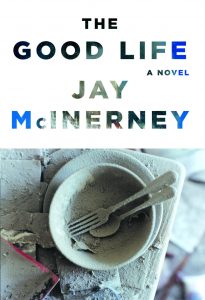
Author's Notes
The Good Life had a long and difficult birth. Starting around 1999 I experienced, for the first time in my life, that affliction known as writer’s block, with which I had very little previous acquaintance. I was going through a very rough patch: my third marriage was disintegrating and I was struggling with acute depression. Then on Sept 11, 2001, the World Trade Center was attacked, and suddenly, and for some time to come, writing fiction seemed like a frivolous pursuit.
I was fortunate enough to get past the police barricades and talk my way into a job as a volunteer at a soup kitchen which had sprung up a couple of blocks from Ground Zero at Bowling Green. Because I happen to know a lot of chefs and restaurateurs, one of my jobs was to cadge meals—a hundred taglieteli
Continue Reading
October 16, 2019
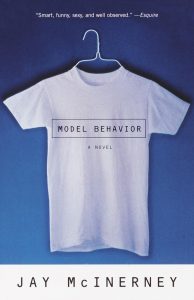
Author's Notes
I can’t exactly remember the genesis of Model Behavior, although I would say at this distance that it was an attempt to reclaim the material of my youth and write one more book about an irresponsible post-adolescent who has yet to sign the social contract. This may have been inspired by the fact that I had recently become a father and I was nervous about it. I think the book was prescient in at least one regard, which is its anticipation of the epidemic of celebrity journalism, its protagonist being one of those poor hacks who has to write mostly fawning profiles of movie and television stars. I guess some people might think of this as a dream job but Collin McNab is smart enough and ambitious enough to want more. He lives with, and loves, a woman who
Continue Reading
October 16, 2019
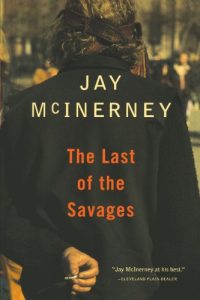
Author's Notes
The Last of the Savages is perhaps something of an anomaly—one of only two of my books set outside of Manhattan. In fact I wrote it while I was living part time outside of Nashville, Tennessee. I’d always been fascinated by the South, by Southern literature and Southern characters. In 1991 I married Helen Bransford, one of the more eccentric and fascinating people I’d ever met in my life, who came from old southern stock—from Charleston, South Carolina on her mother’s side and Nashville on her father’s side. At this point I was a little burned out after just barely surviving the eighties in New York so I ended up buying an old farmhouse in Franklin, Tennessee, and while we kept an apartment in the city, we spent at least half the year for the next five years in Tennessee.
The
Continue Reading
October 16, 2019
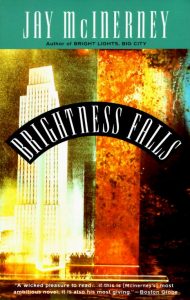
Author's Notes
Brightness Falls is probably my favorite of all the novels. It was certainly my most ambitious up to that point. I remember one day waiting at a light to cross Fifth Avenue and seeing, across the street, Ronald Perelman, the billionaire soon-to-be owner of Revlon, waiting on the other side of the street. Standing next to Perelman was a homeless man. And I thought—yeah, that’s New York. And I want to write a novel capacious enough to contain both of those characters, the billionaire and the homeless man. I was inspired, too, by Balzac’s Parisian novels which I was reading at the time.
As much as it’s a novel about New York, Brightness Falls is also a novel about marriage. I wanted to write about a successful marriage, in part because my second marriage had just fallen apart. I think
Continue Reading
October 16, 2019
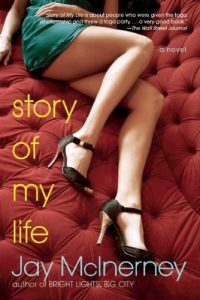
Author's Notes
Story of My Life was another narrative, like Bright Lights, that started out as a voice-driven short story, more of a riff than a story, really, and grew into a novel. When I started writing it I was dating a girl named Lisa Druck who was about ten years younger than me—she and her friends were all about twenty and they’d all arrived in New York recently; they knew each other from the hunters and jumpers riding circuit. I was fascinated by their speech, a kind of East Coast version of a dialect that was called Valley Girl speak. To me it had a certain poetry, a compelling rhythm and energy. I was also fascinated by the frankness with which they spoke about sex and men. Sometimes I found myself the only man in the room, late at night,
Continue Reading
October 7, 2019
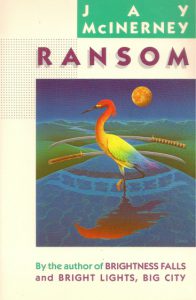
Author's Notes
Ransom was my second novel, published a year after
Bright Lights, but in a sense it was my first. I started working on it in when I went to grad school at Syracuse and showed various chapters to Ray Carver and Toby Wolff and my fellow students. It was my expatriate novel, based on the two years I’d lived in Japan. Like my protagonist, I studied Karate while living in Kyoto. Ransom was partly an act of homage to writers like Robert Stone and Graham Greene and V.S. Naipaul. I was certainly under these and other influences, but I was struggling with the book for several years before I dropped it to write Bright Lights. Later, in the spring of 1984 I returned to the material and finally finished the book that summer just before Bright Lights was published.
Continue Reading
October 7, 2019
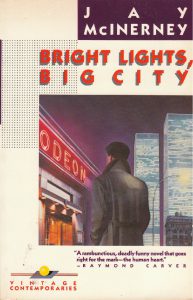
Author's Notes
In 1982 the Paris Review ran my first published story, “It’s Six A.M. Do You Know Where You Are.” It attracted a fair amount of attention in part because it was written in the second person, in part because of its explicit references to cocaine. It started life as a paragraph scrawled on a scrap of paper very early one morning after a disastrous night on the town. Many months later I found that scrap of paper and thought the voice was intriguing. I sat down and wrote a story about a guy in a nightclub who was not the kind of guy who would be at a nightclub at six in the morning -although he was. Much as I liked the story, I decided that there was more to tell and so a year later I picked it
Continue Reading
 A Vintage Shorts “Short Story Month” Selection
That summer in New York, everyone was wearing yellow ties; the stock market was coming into a long bull run; and Corrine and Russell Calloway quit smoking.
From the writer whose Bright Lights, Big City defined a generation and the city of New York: the taut, darkly funny, alternately sultry and wistful story of the Calloway clan, who also appear in The Good Life and Brightness Falls. A selection from How It Ended, a career-spanning collection of McInerney’s short fiction, which show him to be a master of the genre, “brim[ming] with all the attendant guilt and thrills and self-defeating impulses of an extramarital tryst . . . Brilliant” (The Boston Globe).
File Size: 4325 KB
Print Length: 34 pages
Publisher: Vintage (May 9, 2015)
Publication Date: May 9, 2015
Language: English
ASIN: B00VD0420A
A Vintage Shorts “Short Story Month” Selection
That summer in New York, everyone was wearing yellow ties; the stock market was coming into a long bull run; and Corrine and Russell Calloway quit smoking.
From the writer whose Bright Lights, Big City defined a generation and the city of New York: the taut, darkly funny, alternately sultry and wistful story of the Calloway clan, who also appear in The Good Life and Brightness Falls. A selection from How It Ended, a career-spanning collection of McInerney’s short fiction, which show him to be a master of the genre, “brim[ming] with all the attendant guilt and thrills and self-defeating impulses of an extramarital tryst . . . Brilliant” (The Boston Globe).
File Size: 4325 KB
Print Length: 34 pages
Publisher: Vintage (May 9, 2015)
Publication Date: May 9, 2015
Language: English
ASIN: B00VD0420A 







